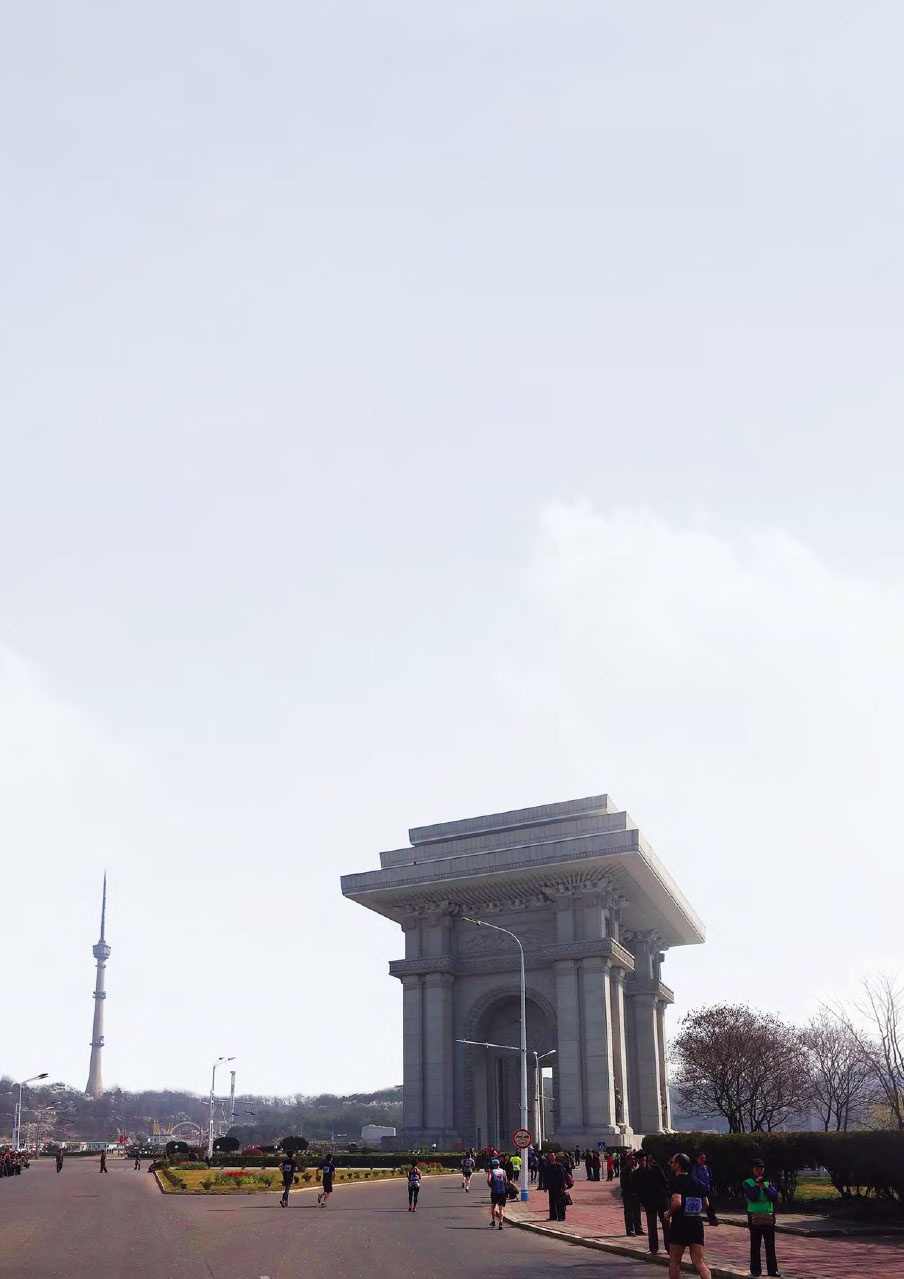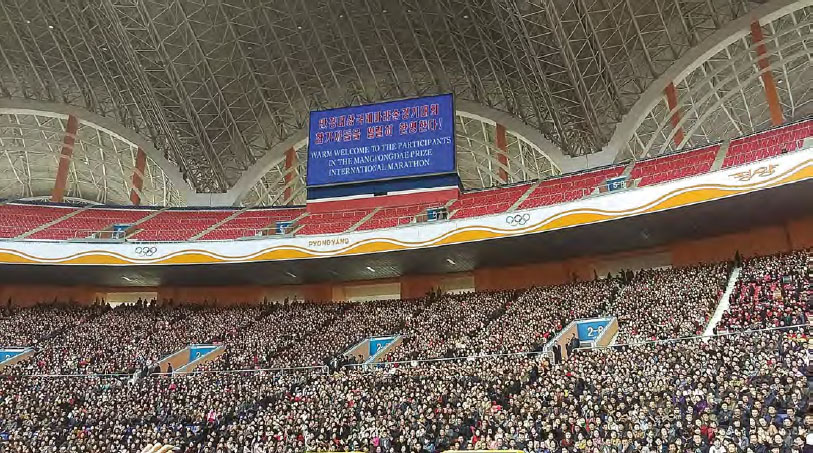
Edwin Cheung
IN 1999 25-year-old North Korean Jong Song Ok became a national hero when she won the women’s marathon in the World Championships in Seville, Spain, which remains the country’s only gold at the championships. At a press conference after the race she was asked what her motivation was for success and her famous reply revealed much about sport, and society in general, in North Korea: “I just run and run having our Great General in my mind. This is the main resource of my strength.” She was referring to North Korea’s founding father, Kim Il Sung, who died in 1994 and is still recognised as the country’s “eternal president”. Since 1981 a marathon has been held each April as part of celebrations to mark his birthday, a national holiday in North Korea known as “the Day of the Sun”.

Pyongyang's marathon has recently opened up to international runners
Edwin Cheung